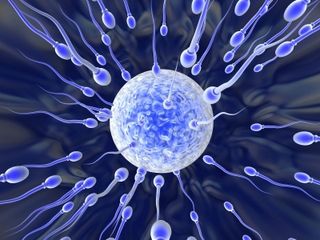Vitamins May Improve Sperm for Older Men

Older men may be able to boost the quality of their sperm with a diet high in antioxidants and certain vitamins, cutting the risk of passing on genetic mutations to their kids, new research suggests.
Scientists at the U.S. Department of Energy's Lawrence Berkeley National Laboratory assessed 80 healthy male volunteers between 22 and 80 years old. The men over 44 who had the most vitamin C in their diet had 20 percent less sperm DNA damage compared to their peers who consumed the least vitamin C, the researchers said. Antioxidants, vitamin E, zinc and folate had the same effect, the study found.
Berkeley Lab researcher Andy Wyrobek explained that these micronutrients may help "turn back the clock for older men."
"We found that men 44 and older who consumed at least the recommended dietary allowance of certain micronutrients had sperm with a similar amount of DNA damage as the sperm of younger men," Wyrobek said in a statement.
Recent research found that older fathers are more likely to pass on genetic mutations to their kids, increasing the risk of diseases like schizophrenia, autism and other mental disorders. This phenomenon is a growing public health concern as more and more men in the United States become fathers later in life. But the Berkeley study offers a potential remedy.
"This means that men who are at increased risk of sperm DNA damage because of advancing age can do something about it," Wyrobek said. "They can make sure they get enough vitamins and micronutrients in their diets or through supplements."
The scientists noted, however, that more research is needed to find out whether this link extends to male fertility and the health of offspring. Their study appeared Monday (Aug. 27) in the online issue of the journal Fertility and Sterility.
Sign up for the Live Science daily newsletter now
Get the world’s most fascinating discoveries delivered straight to your inbox.
Follow LiveScience on Twitter @livescience. We're also on Facebook & Google+.

